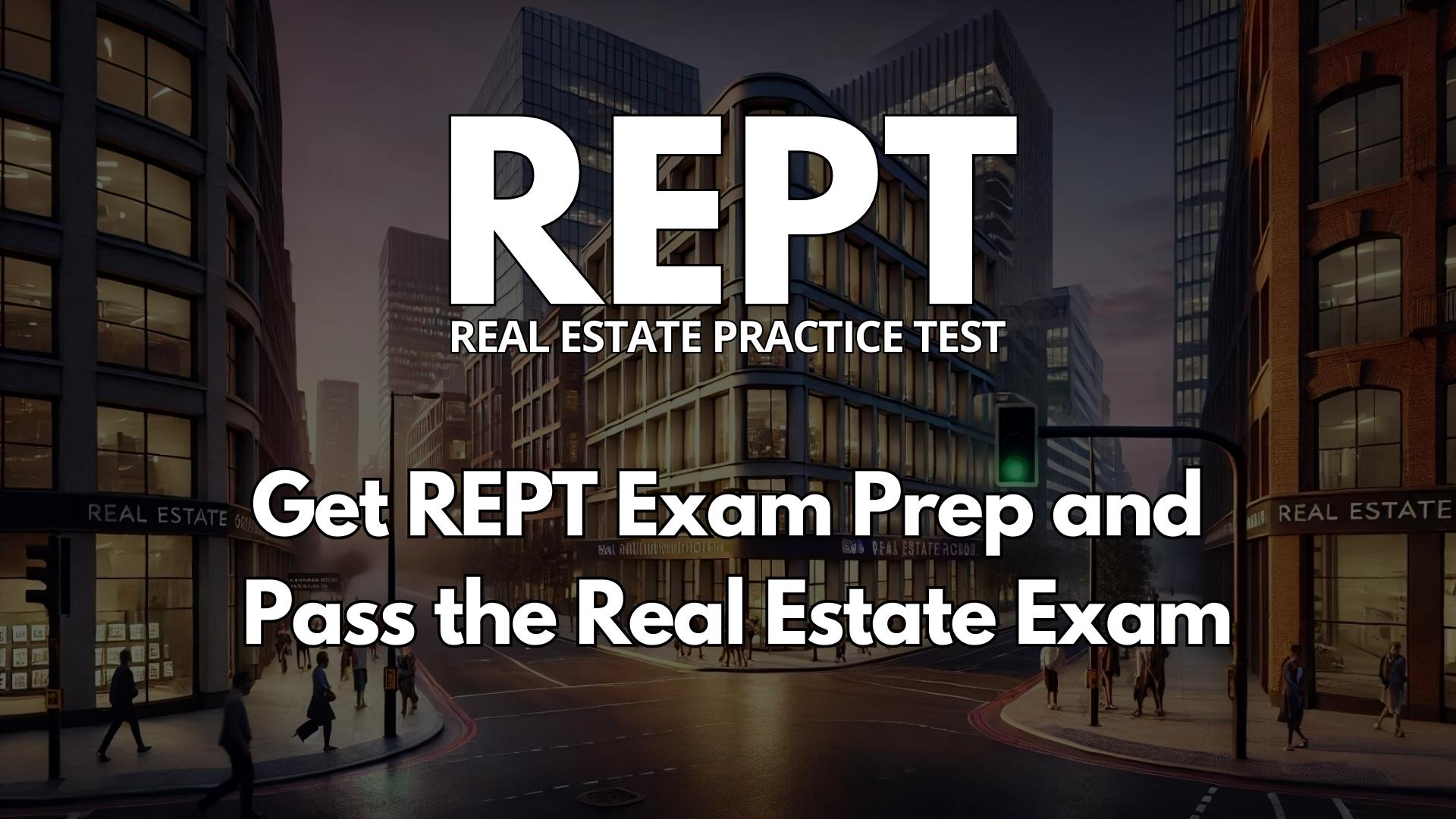
-
Practice Mode & Live Timed-Exam Mode
-
2024 Rules & Regulations, State-Specific Questions
-
500 Practice Exam Questions + 450 Vocabulary Test Questions + 50 Real Estate Math Prep Questions
-
Videos, Glossary Terms, & Vocabulary Flashcards
Understanding Abatement: Key Concept for the Real Estate Exam
When preparing for your real estate licensing exam, mastering key terms is crucial to passing with confidence. One such term that often appears in real estate practice exams is abatement. For many, this term may seem complex at first, but it’s essential to understand, as it plays a significant role in property law and tax scenarios. At Real Estate Practice Test (REPT), our goal is to help you get familiar with such terms and concepts so you can confidently answer questions during your exam.
What is Abatement?
In real estate, abatement generally refers to a reduction, decrease, or elimination of something—most often related to property taxes, rent, or environmental hazards. Understanding the various contexts in which this term is used will allow you to tackle exam questions with ease.
Types of Abatement in Real Estate
There are a few different contexts where the term "abatement" may arise. Let’s break them down:
- Tax Abatement
One of the most common forms of abatement you’ll encounter on the real estate exam is tax abatement. This refers to a reduction or exemption from property taxes for a specific period. Governments may offer tax abatements to incentivize development in certain areas, such as urban renewal zones or areas undergoing gentrification.
For example, a city might offer a tax abatement to developers building affordable housing, encouraging growth and investment in underdeveloped neighborhoods. As a real estate professional, knowing how to explain tax abatements to clients is vital since they can significantly affect a property’s overall investment value.
- Rent Abatement
Rent abatement involves a temporary reduction in rent, often used in commercial leases. This can occur when a tenant is unable to use the property due to specific circumstances, such as during construction, major repairs, or if the property has been damaged and is uninhabitable. Rent abatement clauses can provide relief for tenants in these situations, and knowing when this might apply is crucial for future real estate agents.
In a real estate exam setting, you may be asked to define rent abatement or identify situations where a rent abatement clause could be applicable.
- Environmental Abatement
Another important form of abatement is environmental abatement, which involves reducing or removing environmental hazards like asbestos, lead paint, or mold from a property. This is a key term, especially for students preparing to work in areas with older properties where such environmental hazards may be more common.
Environmental abatements are often required by law to ensure properties are safe for habitation. Understanding how this process works and the regulations surrounding it can help you answer exam questions related to environmental compliance and safety in real estate transactions.
Abatement on Real Estate Practice Exams
When it comes to real estate licensing exams, the term "abatement" is likely to appear in various contexts. You could be asked to define the term, provide examples of when abatements might occur, or even navigate a scenario where understanding abatement is necessary for determining the value of a property or its tax obligations.
Here’s an example question you might encounter during your exam preparation with REPT:
- Question:
Which of the following best describes a tax abatement?
A. Temporary increase in property taxes
B. Government program that eliminates rent obligations for tenants
C. Reduction or exemption in property taxes for a specific period
D. Process that eliminates zoning restrictions on commercial properties - Answer:
C. Reduction or exemption in property taxes for a specific period.
By using REPT’s Real Estate Practice Exams, you can practice answering questions like this to ensure you fully understand how abatements work in the real estate world.
Why Understanding Abatement Matters for Your Real Estate Career
Understanding abatement is not just about passing your exam—it’s about being prepared to handle real-world scenarios as a licensed real estate agent. Whether you're explaining tax abatements to a first-time homebuyer, negotiating a rent abatement clause for a commercial tenant, or ensuring a property meets environmental standards, this concept will come up regularly in your professional life.
Prepare to Get REPT!
At Real Estate Practice Test (REPT), we provide a comprehensive set of tools to ensure you’re well-prepared for your real estate exam. Our practice exams feature hundreds of questions, including terms like abatement, along with flashcards and study guides to help you grasp complex topics. With the latest real estate rules and regulations for 2024, REPT ensures that you’re studying the most up-to-date information.
Our platform offers 1000+ questions to prepare you for the exam:
- 500 Real Estate Exam Questions
- 450 Vocabulary Test Questions
- 450 Flashcard Terms
- 50 Real Estate Math Questions
- Practice Mode & Live Exam Mode
By regularly engaging with our platform, you’ll develop a deep understanding of essential real estate concepts, ensuring that terms like abatement no longer feel intimidating when you see them on your exam.
Ready to GET REPT?
Abatement is a fundamental concept in real estate, covering various forms from tax to rent and environmental abatements. By mastering this term with the help of REPT's practice tests, you’ll be equipped to handle related questions on your real estate licensing exam confidently.
If you’re serious about passing your real estate exam and want to strengthen your knowledge of key terms like abatement, consider signing up for REPT’s Real Estate Practice Exams today. With state-specific questions and user-friendly study modes, REPT is your go-to resource for exam success.

